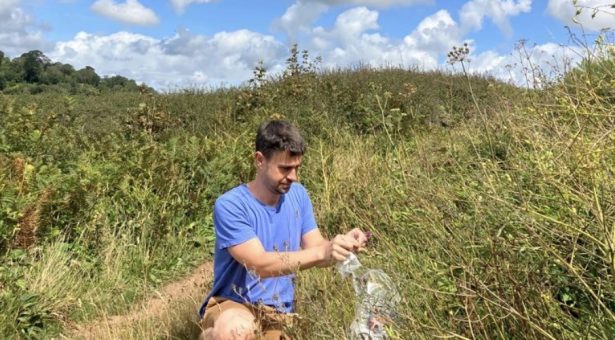Jonathan Ashworth

Project title: Biodiversity, wellbeing and colour: wildflower genomics to inform the creation of new habitats
Supervisor: Dr Jose De Vega
My undergraduate degree was in Ecology, but, as a mature student, I have been involved in a wide variety of projects over the years. At the Royal Botanic Garden Kew I supported the Wet Tropics of Africa team, managing specimens and working on reports focussed on west African botany. For the Wildlife Conservation Society, I had the opportunity to lead a botanical survey of a gorilla reserve in Cameroon; and was subsequently able to use some of the same field skills in in the coffee region of Colombia and volunteering and fragmented forests of Guatemala amongst other places. In the UK I have volunteered for several of the Wildlife Trusts as well as the National Trust and British Trust for Conservation Volunteers. I am passionate about conservation and my main academic interest is in plant diversity and evolutionary which is why I am so excited about my PhD at the Earlham Institute.
To give some background to the present project, from November 2023 Biodiversity Net Gain (BNG) will require UK developers to offset damage to habitats by buying “biodiversity credits” from land managers, who are in effect receiving private capital to create new habitats as defined under the UK Habitat Classification (UKHab). UKHab defines habitats in terms of presence of native plant indicator species. This is expected to dramatically increase demand for commercial quantities of native wildflower seed. Because traditionally non-crop plant species are not included in UK seed marketing regulations, the wildflower seed industry is a black box in terms of seed quality, sourcing and production practices. We know from extensive research in crops that cultivation has lead to founder effects and genetic bottlenecks that have resulted in genotypes that are highly vulnerable to changes to environmental conditions such as those characteristic of climate change (heat, drought).
Working with the Eden Project National Wildflower Centre (NWC) my project aims to to characterise the wildflower seed production process and it’s effect on genotype, phenotype and population of key species. Beginning by sampling wildflower seed products from major UK suppliers, I will then identify bottlenecks and opportunities in the production process by sampling strategically at each stage of wildflower seed production; from wild source populations, through the bulking, drying and cleaning process and the final product. Later in the project I will aim to assess the effect of simulated climate scenarios on key genotypes identified along the way to understand that phenotypic and population fitness effects. Ultimately, the project will inform policy makers and industry leaders in how best to maintain genetic diversity and resilience in the wildflower ‘crop’ for the sustainable delivery of the UK’s biodiversity targets.
